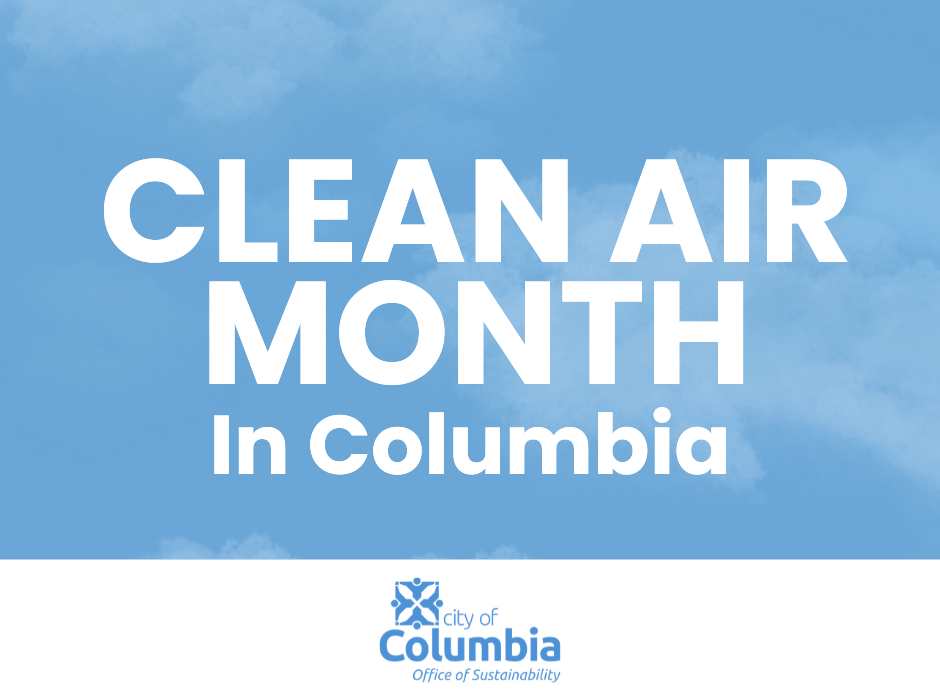Clean Air Month in Columbia
May is Clean Air Month, a yearly opportunity to learn about the relationship between climate change, clean air, and public health and learn what we can do to improve air quality in our community and across the world.
The roots of this awareness stretch back to the 1972 passage of the Clean Air Act, a landmark United States federal law designed to control air pollution through creation of air quality standards and regulation of hazardous airborne pollutants. Already, the Clean Air Act has avoided thousands of cases of health concerns across the country. In Columbia, our Climate Action and Adaptation Plan (CAAP) works to advance initiatives that continue the spirit of this act through promoting cleaner air and a healthier environment for all residents.

Source: EPA
Increased emissions and their climate impacts – like temperature and precipitation – also increase air pollutants, harmful substances that can lead to or worsen health problems like lung and heart diseases. Outdoor air pollutants can also enter buildings (or be produced within buildings, like through use of gas stoves) and can be linked to similar health issues.

- Indoor and outdoor air pollution: As we reduce unnecessary and/or dangerous substances into our environment, air pollutants like ground-level ozone and particulate matter lead to worsened public health outcomes. Ozone can worsen symptoms like bronchitis and asthma, and particle pollution from factories, cars and trucks, and construction sites can cause irritation and disease.
- Wildfire smoke: A changing climate has led to more frequent, intense wildfires, and a longer wildfire season. In Missouri, the past four years have already seen a serious increase pollution from wildfire smoke, which can cause health effects from nose, eye, and lung irritation to increased risk of heart attacks and strokes. Wildfire smoke can impact areas far beyond burning areas, with Canada’s high wildfire rate in 2023 heavily impacting air quality across the United States.
Source: KOMU
- Airborne allergens: Climate change’s warmer temperatures, prolonged spring and summers and precipitation changes increase community exposure to pollen and other airborne allergens. While not explicitly considered pollutants, allergens can increase allergy-related illness and worsen pre-existing conditions, like asthma.

- Embrace sustainable transportation: By choosing to walk, bike, or use public transport (like on-demand GoComo buses), you can reduce emissions associated with gas-powered vehicles. If you’re ready to take the next step in reducing transportation emissions, see our most recent blog post to learn about choosing an electric vehicle for your next car.
- Make your home greener: A majority of emissions in Columbia come from buildings. Switching to electric appliances (like stoves, washers, dryers, and water heaters) and home systems (like heat pumps) can greatly reduce your contribution to those emissions – and will save you money on your utility bills.
- See Columbia Water & Lights current rebates, loans, and energy efficiency programs here.
- Reduce your exposure: Use the Air Quality Index (AQI) to guide outdoor activities. When AQI is unhealthy, take simple steps to reduce exposure by choosing less intense activities, taking more breaks, and rescheduling outdoor activities to better air quality timing.
Previous Post
Celebrating Energy Efficiency Experts in Columbia
Next Post
Watershed Signs Meandering out into the County!



